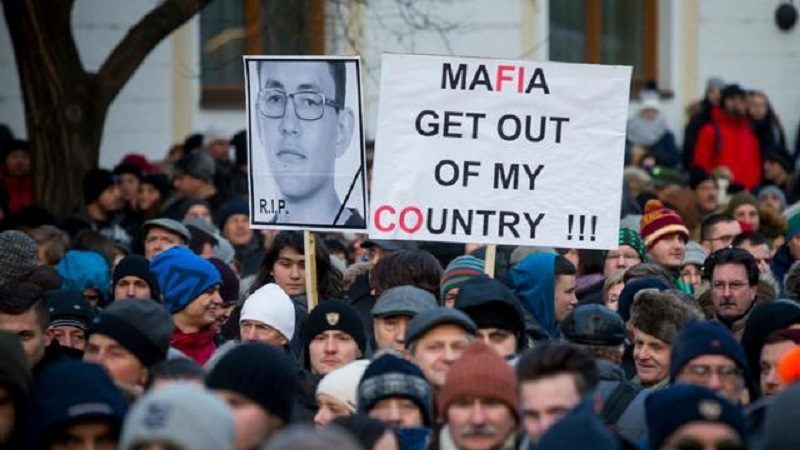Journalists across Europe are questioning relations between shady business and politicians. The links have always been the subject of investigations by the press, but there is now an outcry for justice following the assassination of two journalists, in Slovakia and in Malta, who were focusing on these links. Many questions remain unanswered, although new similarities between the two countries are now being noticed.
The media has been questioning the relationship between Czech President Miloš Zeman and the main financial backer for his campaigns – entrepreneur Jaroslav Strnad who has been involved in suspicious weapons deals, buying stocks and factories across the former Yugoslav territory, according to OCCRP. These stockpiles are unreliable; they are not used by regular armies in developed countries but they appeal to militant groups and States facing conflict such as Syria, Iraq and Southern Sudan.
President Zeman seemed to come to the aid of his friends when he criticised his country’s law on arms control. Last May, he said that efforts to control arms trade “in a totally inappropriate way restricts our export to non-embargoed countries on the pretext that there is a risk of re-exporting to countries no longer deemed safe,” Zeman said last May.
During a press conference, he threatened the journalists with a toy gun.
Zeman’s friends have also made it to the political table and they are being investigated. A case in point is business tycoon turned politician Prime Minister Andreas Babiš. His ANO (YES) Party was the leading party supporting Zeman for Presidential re-election.
A billionaire, whose ANO Party won the Czech parliamentary election last October, he is being charged with fraud in a case involving a €2 million EU fund subsidy. Crooks really are everywhere, it seems.
A similar story involving such questionable relations was unveiled following the murder of Jan Kuciak in Slovakia earlier this month. Kuciak’s last article unveiled the relationship between model turned Prime Minister’s assistant Maria Troskova and former business partner and Ndrangheta-linked business man Antonino Vadala.
Prime Minister Robert Fico also seemed to fall in line. He did not hold back from insulting journalists: “Some of you are dirty, anti-Slovak prostitutes, and I stand by my words”. He added, “you don’t inform, you fight the government.”
There are enough examples of similar language used to refer to journalists in Malta. And both countries have had one of their investigative journalists exploring the links between shady business and politics assassinated.
The main difference between the two countries is that the death of Kuciak, who probed fraud cases involving politically-connected businessmen, stoked public anger over persistent corruption allegations and pushed Fico’s government towards collapse.
Some 50,000 people took to the streets following Kuciak’s assassination. It led to the resignation of the Interior Minister Robert Kalinak, after the Culture Minister resigned saying, “The ministry of culture is closest to the media. After what has happened, I cannot imagine just sitting quietly in the Minister’s chair. As Culture Minister, I cannot identify with the fact that a journalist was killed during my tenure.”
In Malta, Culture Minister Owen Bonnici is not only hanging on to his seat, he is defending the deletion of public records so cronies can get to practice law despite a criminal conviction.
General Prosecutor Jaromir Čižnár was right to say Slovakia “is not Malta”. He apologised later, but his assessment was spot on.












